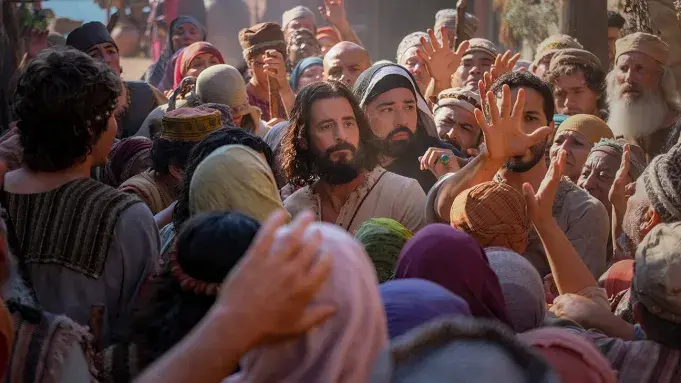Mary's Visitation to Elizabeth: A Call to Mission and Service
- josnardionzon5
- Jun 1, 2024
- 5 min read

During those days Mary set out and traveled to the hill country in haste to a town of Judah, where she entered the house of Zechariah and greeted Elizabeth. When Elizabeth heard Mary’s greeting, the infant leaped in her womb, and Elizabeth, filled with the holy Spirit, cried out in a loud voice and said, “Most blessed are you among women, and blessed is the fruit of your womb. (Luke 1:39-42)
The angel told Mary in the Annunciation that Elizabeth was six months pregnant. Mary quickly visited her elderly cousin. When Elizabeth heard Mary's greeting, the infant leaped in her womb, and Elizabeth, filled with the Holy Spirit, cried out, "Blessed are you among women, and blessed is the fruit of your womb." We recite these words in our rosary. But what makes Mary the most blessed among women? Elizabeth said, "Blessed are you who believed that what was spoken to you by the Lord would be fulfilled” (Lk 1:45).
Mary's Faith
Elizabeth was the wife of a priest named Zechariah. Both were descendants of Aaron. Luke described them as "righteous in the eyes of God, observing all the commandments and ordinances of the Lord blamelessly. But they had no child because Elizabeth was barren and both were advanced in years." (Lk 1:6-7). At that time, people saw childlessness as a disgrace or being excommunicated from God and a valid ground for divorce. Thus, Zechariah had been praying to God for a child. The angel Gabriel appeared to him during his priestly duty in the innermost court of the Temple, the Court of the Priests. The angel told him God's message that his wife would bear him a son. He doubted God's message because he and his wife were old. Because of his doubt, Zechariah was punished, unable to speak.
In contrast, Mary, despite her doubt, said her fiat: "Behold, I am the handmaid of the Lord. May it be done to me according to your word.” (Lk 1:38). "How can this be, since I have no relations with a man?” Mary asked the angel. The angel assured her that nothing is impossible with God; proof: her cousin Elizabeth, old and barren, is pregnant.
This is why Elizabeth called Mary the most blessed because she believed God's word would be fulfilled. When Jesus was told that his mother and his brothers wanted to see him, Jesus replied: “My mother and my brothers are those who hear the word of God and act on it.” In Luke 11:28-29, we read: "While he was speaking, a woman from the crowd called out and said to him, “Blessed is the womb that carried you and the breasts at which you nursed.” He replied, “Rather, blessed are those who hear the word of God and observe it.”
Moreover, there is a paradox in being called blessed. A sword pierced the heart of Mary as she witnessed the passion and death of her son Jesus. Simeon, a good and pious Jew who was waiting for the consolation of Israel, believed that God would send the promised Messiah to restore and rebuild Israel. When he saw the child Jesus, Simeon said, "Now, O Lord, as you said, let your servant depart in peace, because my eyes have seen your instrument of salvation, which you have prepared before all the people, a light to bring your revelation to the Gentiles, and the glory of your people Israel." Then Simeon told Mary, "Look, this child is appointed to cause the fall and rise of many in Israel and to be a sign that will be opposed." He also said, "And a sword will pierce your heart," meaning that someday Mary would witness the suffering and death of her son (see Lk 2:25-35).
Mary's Magnificat
What was Mary's response after being praised by Elizabeth for her faith and as the mother of the Lord? She sang her "Magnificat"—“My soul proclaims the greatness of the Lord." It's a servant song of praise to God. In the seminary and monastery, we pray the "Canticle of Mary" or "Magnificat" during Vesper or night prayer. This song has its origin from the Old Testament, particularly from the Song of Hannah (1 Sam 2:1–10) and Psalm 136. As a devout Jew, Mary would have memorized the song and similar verses of thanksgiving to God for the promised Messiah to save the world through His obedient servant.
In her Magnificat, Mary praised God for (1) scattering the proud in the plans of their hearts; (2) bringing down the powerful from their thrones and lifting up the lowly; and (3) filling the hungry with good things and sending the rich away empty.
In the public ministry of Jesus, he preached the kingdom of God as a reversal of the existing power structures of the world.
In the Sermon on the Plain, Jesus called blessed the humble, the poor, and the hungry. "Blessed are you who are poor, for yours is the kingdom of God. Blessed are you who hunger now, for you will be satisfied. Blessed are you who weep now, for you will laugh." Conversely, "But woe to you who are rich, for you have already received your comfort. Woe to you who are well fed now, for you will go hungry. Woe to you who laugh now, for you will mourn and weep." (Lk 6:20-26)
Mary's Service to Elizabeth
Luke said, "Mary remained with her about three months and then returned to her home." So, Mary stayed with Elizabeth until the latter gave birth. She helped her with household chores such as fetching water and cleaning the house. She did not just visit her to share her joy as the Mother of the Lord but to serve.
When we recognize God's gift in us, we feel the deep joy that overflows, leading us to share it with others. The best way to do this is by serving those in need. In the language of the church, this is called "missionary" or going out to reach people, especially those who are in need—the poor, the oppressed, the excluded. And this is done by serving them.
In the SVD, we call this service moving from our comfort zone to the peripheries/frontiers as missionaries, engaging in prophetic dialogue with others (those seeking faith, the poor and marginalized, those with different cultures, and those with other religions and secular ideologies).
Pope Francis calls it the "missionary option"—transforming a self-centered church into a missionary church. This missionary church operates from a place of powerlessness and humility, avoiding political power to evangelize (such as imposing its morality on the secular state through political threats) and instead engaging in prophetic dialogue, becoming a listening church, especially to the voices of victims.
A Call to Serve
As followers of the Lord, Jesus Christ, we are sent to proclaim the good news to the world. Based on our reflection on Mary's visitation to Elizabeth, how can we put into practice God's message to us to become missionaries of service to others?
This is the challenge of the Feast of the Visitation: to reach out to those in need, especially those who have been neglected. These are not only the nameless people in our neighborhood. Sometimes, they are people whose names we know but have taken for granted.
Through Facebook and other social media platforms, we can find and check on friends or relatives through text messages or video calls, especially those who feel alone or have chosen isolation to avoid disturbing others. They need our help, and we can only know their situation when we reach out to them. Let us make an effort to reconnect with those we haven't spoken to in a long time.
A simple greeting of "kumusta ka?" can save someone contemplating suicide. After receiving her bonus, a friend reached out and shared her blessings with another friend. She might not know how much her help came at the right moment. Let us visit one another, not only to share our joy but to serve: to heal, to comfort, and to give hope.



Comments